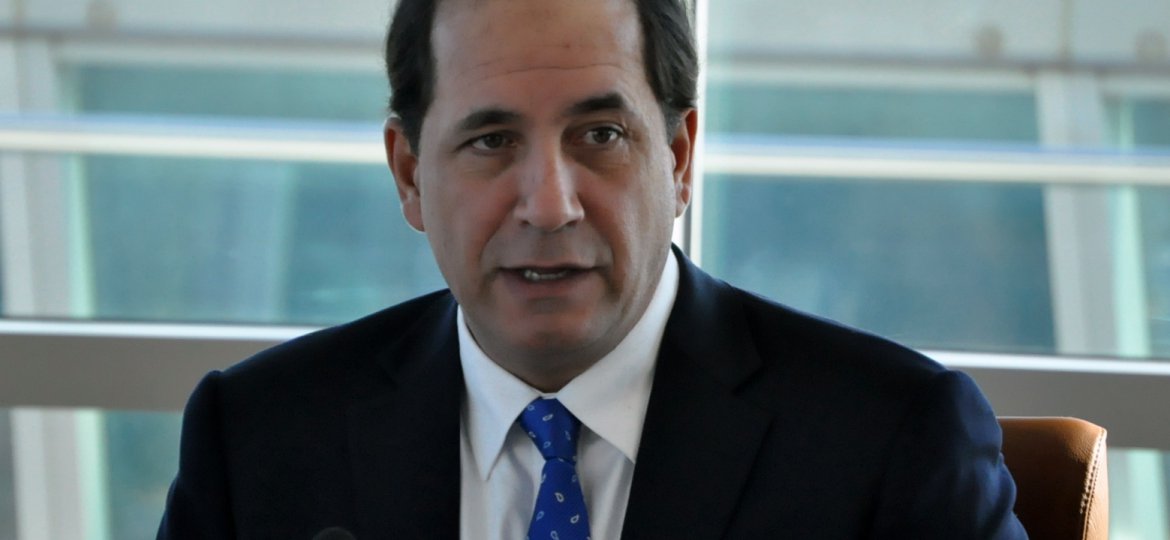
TRENTON – A Senate Concurrent Resolution sponsored by Senator Joseph F. Vitale that urges the Congress and President of the United States not to repeal Patient Protection and Affordable Care Act cleared the Senate and Assembly today.
“The Affordable Care Act and the health insurance reforms it brought made universal, affordable health coverage available to all Americans and many New Jerseyans,” said Senator Vitale (D-Middlesex), who is chair of the Senate Health, Human Services and Senior Citizens Committee. “Any repeal would be devastating to our residents and families, especially those who were previously uninsurable or could not afford health insurance, and would be a major step backwards from the progress we have made in improving access to health care.”
The ACA, enacted in 2010, established a comprehensive series of health insurance reforms designed to make affordable health coverage available to all Americans, while controlling rising health care costs and ending certain common industry practices that limited access to health coverage. The law also expanded access to health insurance coverage by creating transparent health insurance marketplaces, allowing children to stay on their parents’ health plans until the age of 26, expanding Medicaid, and establishing a system of tax credits and penalties designed to both encourage consumers to purchase individual coverage and incentivize businesses to provide coverage to their employees.
Additionally, the ACA prohibits insurers from denying coverage on the basis of a pre-existing condition; prohibits insurers from rescinding coverage; eliminates lifetime and annual limits on coverage; requires all marketplace plans to provide coverage for 10 essential health benefits, including preventative care; established a mechanism for consumers to appeal coverage determinations, and established a system of navigators to assist consumers in navigating the health insurance marketplace.
The ACA also provides incentives to expand the number of primary care providers and encourage them to serve in medically underserved areas, promotes alternative payment methodologies designed to improve the value of care, and works to link patients with community based resources and other services designed to reduce unnecessary hospitalizations and inappropriate emergency department use; and
In New Jersey, the ACA helped reduce the uninsured rate to 8.7 percent, representing a 34 percent decrease in the uninsured population from 1.16 million in 2013 to 771,000 in 2015. In particular, approximately 480,000 new enrollees obtained health coverage in New Jersey through the Medicaid expansion alone, and approximately 24,000 additional health care jobs were added in efforts to expand the primary care network.
“The scale of those affected by any repeal on a national level and at the state level is too large to ignore, and certainly not without any detailed proposals or hard facts on how it will be replaced or which parts of the legislation would be affected,” said Senator Vitale. “The American people deserve to know the facts, but more importantly, they deserve to have the protections they need to live healthy.”
In addition to opposing a repeal of the ACA, SCR-137 urges that any revisions to modify the law should adequately maintain continuing health coverage for those individuals who stand to lose their benefits upon repeal and preserve the significant gains realized through the enactment of this law.
It is estimated that repealing the Medicaid expansion alone would result in approximately 528,000 adults in New Jersey, or approximately 10 percent of the State’s adult population, losing coverage. This estimate includes both those who became newly eligible for Medicaid under the ACA expansion and those who were covered prior to the enactment of the ACA under waivers that have since expired.
Nearly two thirds of those at risk of losing Medicaid coverage following a repeal of the ACA are either active in the workforce or live in a working household, but have a household income that makes health insurance unaffordable without assistance;
It is further estimated that the Medicaid repeal alone could cause New Jersey to lose approximately $3 billion in federal funds in each year following repeal and an additional $4.1 billion in lost economic activity and jobs.
The resolution was approved in the Senate by a vote of 22-14 and in the Assembly by a vote of 46-30-0. It will be filed with the Secretary of State and sent to the President, the Speaker of the House of Representatives, the Majority Leader of the U.S. Senate, and to each member of Congress elected from New Jersey.

